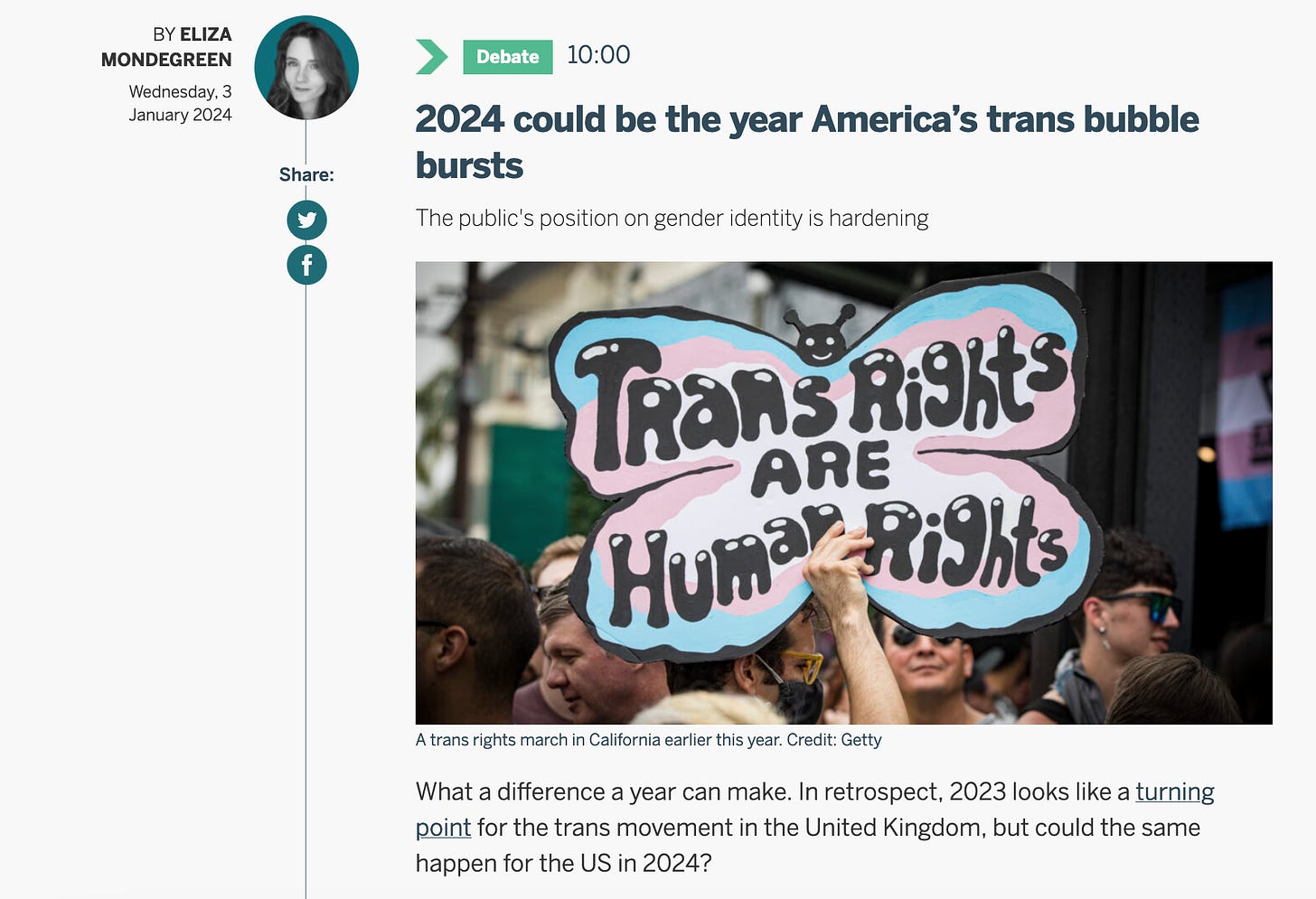Looking ahead at 2024 (at UnHerd):
The New York Times reported this week that “some of the most contentious issues in the country will dominate the agendas of state legislatures” this year, with debates over gender front and centre. So far, 22 states have banned at least some surgical and/or pharmaceutical interventions for gender-distressed youth — although many of these bans have yet to go into effect. Ongoing legal challenges in multiple states will drag the issue ever closer to the Supreme Court docket.
The map of the US is starting to look like a patchwork quilt of states where youth transition is banned and self-proclaimed “sanctuary states” which facilitate easy access to transition for youth. Access to puberty blockers, hormones and surgeries will depend on where one lives, with a handful of purple states likely to remain uncommitted in either direction.
But bans — even bans tied up in litigation —are also messaging devices. While some members of the public will respond in predictably partisan ways, lining up for or against the bans without bothering to size up issues at stake, others will take the opportunity to look closer. Many of those who do will not like what they see. The biggest drivers of public opposition to the trans movement have always been trans activists themselves, in particular their intractability when their demands collide with the interests, needs, and rights of other groups, like women and children. That’s a trend that will only accelerate as public scrutiny increases.
In the US, public support for key agenda items — access to single-sex spaces and sports, and youth gender transition — is rapidly falling. Pollsters lamented that “general society [is] not willing to allow more rights for transgender people.” Yet what the public seems to be rejecting here are not “more rights” for transgender people, but instead the risks to safety, fairness, and ethical medical practice upon which an unreasonable movement insists. People who are tolerant of difference may balk at being expected to go along with nonsense.
Increasingly, it seems as if common sense will ultimately prevail. The sight of a man atop the podium in a women’s cycling race is galling, as is the fact that a troubled teenager who cannot be trusted to get a tattoo is somehow empowered to pick her gender and amputate her breasts.





Spot on article; it’s the intractability of the trans rights movement to recognise the rights of other groups, such as women and children, that’s turning the tide against them.
Instead of just saying what we are against, we should state strongly what we are for to distinguish ourselves from proscriptive trad cons and the "Jesus cries when men aren't men" crowd and to convince the people who need convincing - the liberals who know there is something weird about this gender stuff, but don't want to be on the side of those for whom this issue is obviously and ideological weapon to sneak back in anti-gay and Jesus rigidity. We are for civil rights for so-called gender expression, but against requiring society to validate those beliefs or allow policy to be made based on them. We should think of trans beliefs like religious beliefs in defending the kind of civil rights they should have, vs the kinds of rights that they cannot demand. I live in the Deep South and it is hard to conceptualize if you are from a liberal area, but far more people here think gay people are going to hell than think transwomen are women and those people are just as noxious when they take over institutions. We gotta present pushback to gender identity stuff that doesn't appear to be fellow travelling with those people. We can become useful idiots for that crowd just as easily as liberals became useful idiots for gender identity ideas and by the same mechanisms.